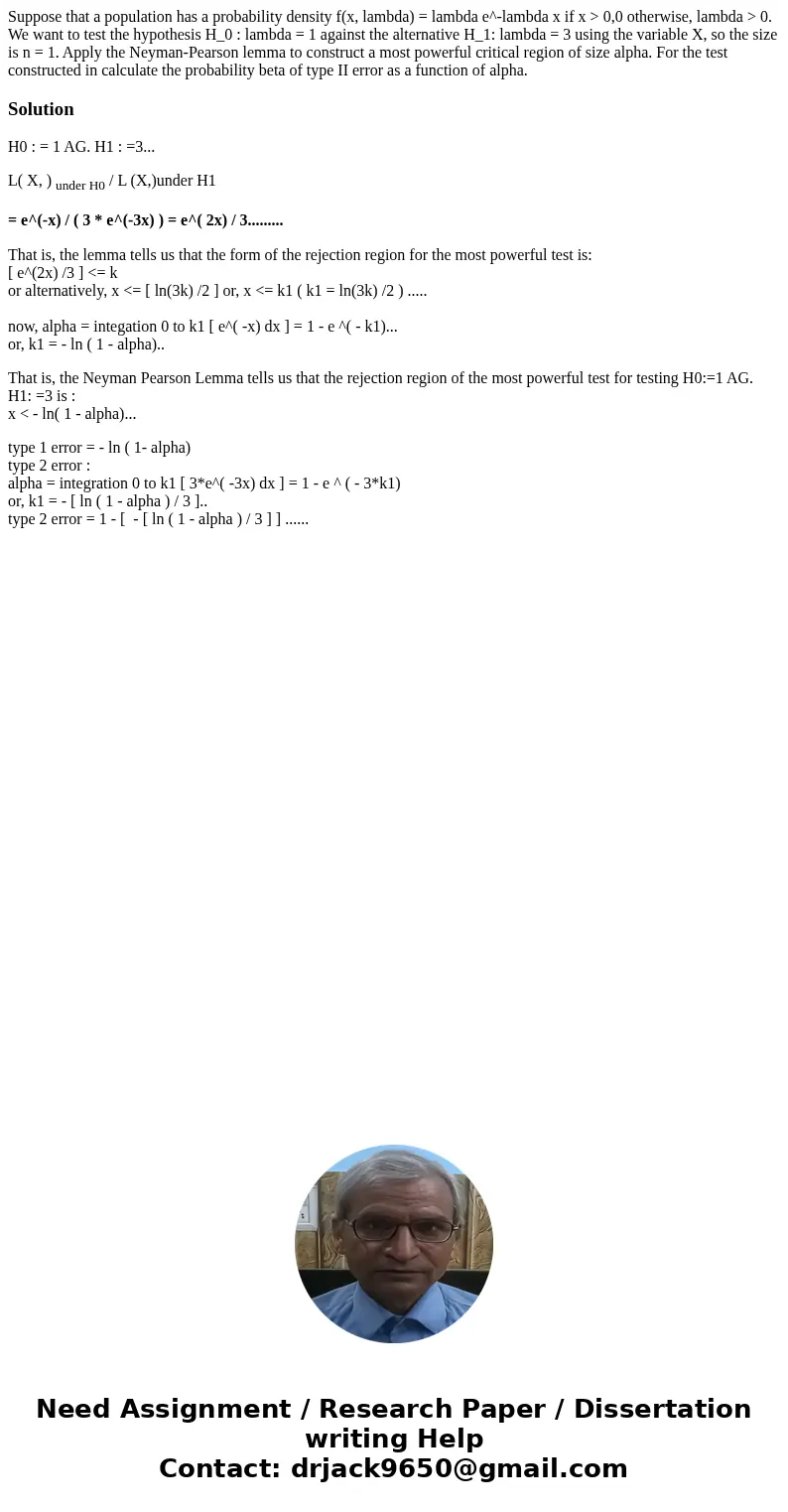Suppose that a population has a probability density fx lambd
Solution
H0 : = 1 AG. H1 : =3...
L( X, ) under H0 / L (X,)under H1
= e^(-x) / ( 3 * e^(-3x) ) = e^( 2x) / 3.........
That is, the lemma tells us that the form of the rejection region for the most powerful test is:
[ e^(2x) /3 ] <= k
or alternatively, x <= [ ln(3k) /2 ] or, x <= k1 ( k1 = ln(3k) /2 ) .....
now, alpha = integation 0 to k1 [ e^( -x) dx ] = 1 - e ^( - k1)...
or, k1 = - ln ( 1 - alpha)..
That is, the Neyman Pearson Lemma tells us that the rejection region of the most powerful test for testing H0:=1 AG. H1: =3 is :
x < - ln( 1 - alpha)...
type 1 error = - ln ( 1- alpha)
type 2 error :
alpha = integration 0 to k1 [ 3*e^( -3x) dx ] = 1 - e ^ ( - 3*k1)
or, k1 = - [ ln ( 1 - alpha ) / 3 ]..
type 2 error = 1 - [ - [ ln ( 1 - alpha ) / 3 ] ] ......

 Homework Sourse
Homework Sourse